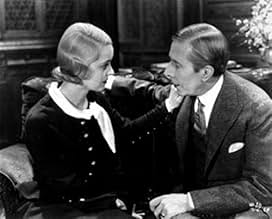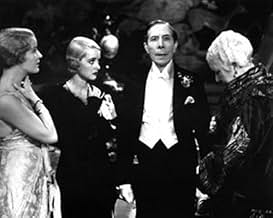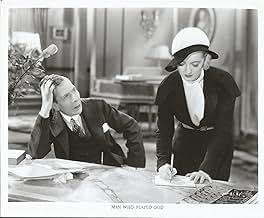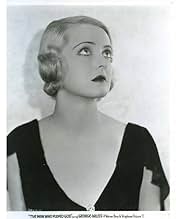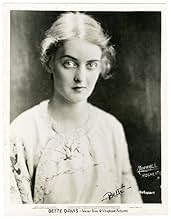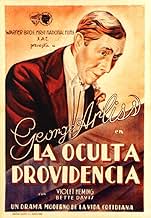IMDb RATING
6.8/10
1.4K
YOUR RATING
After losing his hearing, a musician uses lip-reading to help others.After losing his hearing, a musician uses lip-reading to help others.After losing his hearing, a musician uses lip-reading to help others.
- Awards
- 1 win total
George Arliss
- Montgomery Royle
- (as Mr. George Arliss)
André Luguet
- The King
- (as Andre Luguet)
Ivan F. Simpson
- Battle
- (as Ivan Simpson)
Charles E. Evans
- The Doctor
- (as Charles Evans)
Fred Howard
- Man
- (scenes deleted)
Symona Boniface
- Woman in Audience
- (uncredited)
Wade Boteler
- Detective
- (uncredited)
Elspeth Dudgeon
- Would-Be Ticket Buyer
- (uncredited)
Grace Durkin
- Kit - First Girl
- (uncredited)
Helena Phillips Evans
- Music Fan with Boy
- (uncredited)
6.81.3K
1
2
3
4
5
6
7
8
9
10
Featured reviews
Mr. George Arliss Gives Another Acting Lesson
An aging & celebrated concert pianist completely loses his hearing, and with it his faith in The Almighty. After learning to lip read, he realizes he can once again enter into people's lives, alleviating the misfortunes of total strangers. With this much power to do good, he becomes THE MAN WHO PLAYED GOD.
Although sadly neglected today, George Arliss was one of the very greatest of film actors of the 1930's. His art was consummate - a whole volume of emotion could be conveyed by the slightest movement of face or posture. He gives a wonderful performance here as a man torn from what he loves the most, blaming God for it and eventually finding peace.
A splendid actress of the same period, Louise Closser Hale gives quiet dignity to the role of Arliss' sister. As his protégé, young Bette Davis does a fine job; she always considered this to be her first film role of substance. Ivan F. Simpson is excellent as a very loyal butler. Hedda Hopper has a tiny role as a woman at a picnic & look for an uncredited Ray Milland as a young man in Central Park attempting suicide.
Although sadly neglected today, George Arliss was one of the very greatest of film actors of the 1930's. His art was consummate - a whole volume of emotion could be conveyed by the slightest movement of face or posture. He gives a wonderful performance here as a man torn from what he loves the most, blaming God for it and eventually finding peace.
A splendid actress of the same period, Louise Closser Hale gives quiet dignity to the role of Arliss' sister. As his protégé, young Bette Davis does a fine job; she always considered this to be her first film role of substance. Ivan F. Simpson is excellent as a very loyal butler. Hedda Hopper has a tiny role as a woman at a picnic & look for an uncredited Ray Milland as a young man in Central Park attempting suicide.
A lot more going on here besides Bette Davis
First and foremost, "The Man Who Played God" (1932) is not a Bette Davis vehicle. She was still a few years away from receiving top billing and graduating into 'A' pictures. However, the mere fact that she's in this overlooked and forgotten film will only push it into wider circulation and rapidly increase its number of viewers. So much has already been said about her, there's very little one can add to further compliment her. Personally, I think she gave some of her best performances in these early 1930s B programmers for Warner Bros. Sure, the material wasn't nearly as good, which only made her performances stand out all the more. But Bette Davis has little to do with what stands out about this movie.
After losing his hearing, a well-loved and respected piano player (George Arliss) becomes a recluse. He rejects most of his old friends and companions, and is cruel to the few he does see. He learns to read lips, but grows more and more depressed at the same time. And finally when he has hit rock bottom, he finds a purpose in his life,... philanthropy. Putting aside his own problems and selfishness, his salvation comes from helping others. This is a theme that would recur over and over again to varying degrees in the Depression era 30s (especially in Frank Capra's movies).
The other thing of interest here is the act of voyeurism. Through the aid of binoculars, he's able to read lips, and essentially, spy on everyday New Yorker's. One can't help but wonder if this little movie may have had some influence or have been the basis for the idea of Cornell Woolrich's short story "It Had to Be Murder", which would be eventually adapted into Alfred Hitchcock's "Rear Window" (1954).
This movie, is, by no means a masterpiece, but its still an important one. With so many interesting ideas going on here, its well worth the watch.
After losing his hearing, a well-loved and respected piano player (George Arliss) becomes a recluse. He rejects most of his old friends and companions, and is cruel to the few he does see. He learns to read lips, but grows more and more depressed at the same time. And finally when he has hit rock bottom, he finds a purpose in his life,... philanthropy. Putting aside his own problems and selfishness, his salvation comes from helping others. This is a theme that would recur over and over again to varying degrees in the Depression era 30s (especially in Frank Capra's movies).
The other thing of interest here is the act of voyeurism. Through the aid of binoculars, he's able to read lips, and essentially, spy on everyday New Yorker's. One can't help but wonder if this little movie may have had some influence or have been the basis for the idea of Cornell Woolrich's short story "It Had to Be Murder", which would be eventually adapted into Alfred Hitchcock's "Rear Window" (1954).
This movie, is, by no means a masterpiece, but its still an important one. With so many interesting ideas going on here, its well worth the watch.
Great story...Pivotal Bette Davis movie
In 1932 many actors were still rather new to sound pictures and the great majority of them were theatre trained and while some would stay on in Hollywood, many would return to the stage to stay. Bette Davis was a young actress in the midst of making that decision to aty in Hollywood or return to New York and the stage. She had made several low buget pictures, but things just were not clicking for her. The success of this movie and the attention she received convinced her to stay on and make movies and we are all thankful for that. George Arliss was a grand old man of the stage and his artistry is well portrayed here. His makeup is a little heavy, making him look a little like the Phantom of The Opera with lipstick and darkened nostrils, but soon you get beyond that. The acting is almost strictly stage-style here, this MUST have been a play before it was filmed. The blocking and angles of the actors and the way they seem to talk "at" each other rather than to each other shows the stage acting. Great story, nice escapism... who wouldnt like to help others? We can do that through George Arliss in this movie.
The Sound of Silence
THE MAN WHO PLAYED GOD (Warner Brothers, 1932), directed by John G. Adolfi, from a short story by Gouverneur Morris, stars Academy Award winning actor of 1929s DISRAELI, Mr. George Arliss, in a remake to his 1922 silent screen adaptation. Essentially a showcase for the prestigious Arliss in what might have been just another movie assignment to his credit, it's best known as the motion picture responsible for the advancement of Bette Davis in her first important screen role, following her start at Universal in 1931, thus the beginning of her long association at the Warner studio where she would become its major star attraction before the end of the decade.
Of the George Arliss films in circulation and video today, THE MAN WHO PLAYED GOD holds up remarkably well mainly due to its theme and timely message that never really grows out of date, overlooking the fact that such a story echoes passages from the Holy Bible ("A man who has never suffered has never lived," "If you kill yourself, you'll suffer ten thousand times more" or the age old question, "If God is so merciful, how could he allow this to happen to me?") preached during Sunday services. The title has nothing to do with a actor starring in a religious play, but in fact, about a man whose life becomes an "empty shell" only to change from being a troubled soul after losing his hearing to forgetting his bitterness by helping others. While much of the Arliss movies produced at Warners during the early 1930s were extremely popular, most consist of too much dialog and lack of motion to stir up interest. THE MAN WHO PLAYED GOD is one of those few that doesn't fall into that category thanks to its fine direction, screenplay and supporting players.
The story opens in Paris where 50-year-old Montgomery Royal (George Arliss), a concert pianist, engaged to his protégé, Grace Blaine (Bette Davis), a girl more than half his age, agrees to give a private backstage recital for a monarch. During a performance, an anarchist, intending to assassinate the King (Andre Luguet), explodes a bomb. While everyone has escaped injury, Monty becomes stone deaf. Monte returns to his New York City apartment where he finds it difficult to adjust to his world of silence. He becomes bitter, hating God to a point of canceling his order for an organ he was going to donate to a church in memory of his deaf and religious mother, Margaret Ruth Royal. Without the ability to hear what's precious to him, his music, and becomes an embittered recluse. Coming to the point of suicide by nearly jumping from the window, his loyal butler Battle (Ivan Simpson) saves him in time from eternal suffering by offering him something to occupy his time. Having been taught lip reading, he takes binoculars to spy on people across the street in Central Park, reads their lips, learning of their troubles, and becoming a sort of guardian angel in helping those in desperate need without revealing himself. Finding he now has a purpose in life, he must face another greater challenge involving the loyalty of young Grace.
The supporting cast consists Donald Cook as Harold Van Adam; Louise Closser Hale as Monty's sister, Florence; Oscar Apfel as the Lip Reading Teacher; Paul Porcasi as the Concert Manager; with Hedda Hopper, Murray Kinnell and the unbilled Ray Milland. Of the supporting players, second billed Violet Heming appears to be the least familiar, yet in a role that nearly surpasses the one given by Bette Davis. Her sophisticated mannerisms come close to that of the better known Verree Teasdale, as a widow who secretly loves Monty, in spite of his engagement to another. The Bette Davis trademark is not too much evident at this point, in fact, having the make-up department giving Davis the Constance Bennett manner. Davis would be paired with Arliss one more time in the rarely seen comedy, THE WORKING MAN (1933).
In the midst of horror melodramas, gangsters and pre-code sex dramas playing in theaters at the height of the great depression, THE MAN WHO PLAYED GOD comes as a sort of inspirational drama that offers hope to those who have given up on life, with the moral of the story being, "The Lord works in mysterious ways." Remade by Warners as SINCERELY YOURS (1955) with TV personality Liberace in the role originated by Arliss, whose piano playing served him better than his acting, the latest screen adaptation, that should have improved over the old, didn't, making this 1932 version the one worth viewing. THE MAN WHO PLAYED GOD, which has never been distributed to video cassette or DVD, can be seen on Turner Classic Movies. (***)
Of the George Arliss films in circulation and video today, THE MAN WHO PLAYED GOD holds up remarkably well mainly due to its theme and timely message that never really grows out of date, overlooking the fact that such a story echoes passages from the Holy Bible ("A man who has never suffered has never lived," "If you kill yourself, you'll suffer ten thousand times more" or the age old question, "If God is so merciful, how could he allow this to happen to me?") preached during Sunday services. The title has nothing to do with a actor starring in a religious play, but in fact, about a man whose life becomes an "empty shell" only to change from being a troubled soul after losing his hearing to forgetting his bitterness by helping others. While much of the Arliss movies produced at Warners during the early 1930s were extremely popular, most consist of too much dialog and lack of motion to stir up interest. THE MAN WHO PLAYED GOD is one of those few that doesn't fall into that category thanks to its fine direction, screenplay and supporting players.
The story opens in Paris where 50-year-old Montgomery Royal (George Arliss), a concert pianist, engaged to his protégé, Grace Blaine (Bette Davis), a girl more than half his age, agrees to give a private backstage recital for a monarch. During a performance, an anarchist, intending to assassinate the King (Andre Luguet), explodes a bomb. While everyone has escaped injury, Monty becomes stone deaf. Monte returns to his New York City apartment where he finds it difficult to adjust to his world of silence. He becomes bitter, hating God to a point of canceling his order for an organ he was going to donate to a church in memory of his deaf and religious mother, Margaret Ruth Royal. Without the ability to hear what's precious to him, his music, and becomes an embittered recluse. Coming to the point of suicide by nearly jumping from the window, his loyal butler Battle (Ivan Simpson) saves him in time from eternal suffering by offering him something to occupy his time. Having been taught lip reading, he takes binoculars to spy on people across the street in Central Park, reads their lips, learning of their troubles, and becoming a sort of guardian angel in helping those in desperate need without revealing himself. Finding he now has a purpose in life, he must face another greater challenge involving the loyalty of young Grace.
The supporting cast consists Donald Cook as Harold Van Adam; Louise Closser Hale as Monty's sister, Florence; Oscar Apfel as the Lip Reading Teacher; Paul Porcasi as the Concert Manager; with Hedda Hopper, Murray Kinnell and the unbilled Ray Milland. Of the supporting players, second billed Violet Heming appears to be the least familiar, yet in a role that nearly surpasses the one given by Bette Davis. Her sophisticated mannerisms come close to that of the better known Verree Teasdale, as a widow who secretly loves Monty, in spite of his engagement to another. The Bette Davis trademark is not too much evident at this point, in fact, having the make-up department giving Davis the Constance Bennett manner. Davis would be paired with Arliss one more time in the rarely seen comedy, THE WORKING MAN (1933).
In the midst of horror melodramas, gangsters and pre-code sex dramas playing in theaters at the height of the great depression, THE MAN WHO PLAYED GOD comes as a sort of inspirational drama that offers hope to those who have given up on life, with the moral of the story being, "The Lord works in mysterious ways." Remade by Warners as SINCERELY YOURS (1955) with TV personality Liberace in the role originated by Arliss, whose piano playing served him better than his acting, the latest screen adaptation, that should have improved over the old, didn't, making this 1932 version the one worth viewing. THE MAN WHO PLAYED GOD, which has never been distributed to video cassette or DVD, can be seen on Turner Classic Movies. (***)
This (1932) Motion Picture is the One that Made Bette Davis
"Of Human Bondage," (1934) by RKO, to whom Bette Davis was 'loaned' by Warner Brothers, is most often given credit for the beginning of the Queen of the Silver Screen's magnificent acting career. That's not the historical fact, however; this movie, "The Man Who Played God," (1932) must be credited for bringing Bette Davis the recognition as an actor who could hold her own in the lead next to the great screen legend, George Arliss.
Davis was only 23 years of age when filming the show that earned her enough screen status for RKO to even desire her to play the leading, (dare I say) 'lady' next to leading man, Leslie Howard in "...Bondage." Arliss is to be credited for having, more or less, discovered Bette Davis; phoned her & the rest of her acclaimed acting career began.
So many of the critiquers repeat the myth that "... Bondage" is the film that made the world recognize how great an actor Davis was. But, if it was, RKO would have never even wanted her so badly that they 'got her on loan' from the Warners! RKO recognized the talent of Bette Davis in this film: "The Man Who Played God." So should we.
Never underestimate what young adult & teen women can achieve. After all, Mary Shelley wrote "Frankenstein," when she was only 19 years of age in a bet with great poets, Lord Byron & her husband Percy Bysche Shelley. Ann & Nancy Wilson of the rock band "Heart," composed many of their best songs when they were 13 years of age! Davis had already been on Broadway before taking her role in this movie. In fact, her acting career began when she was 15 (in 1923). Davis went on (& on!) to co-lead with Lillian Gish in "Whales of August," (1987), having been in over 100 movies; was the first woman to receive an Oscar at Warner Brothers (for "Dangerous"); the first person to be nominated for an Oscar 5 years in a row; the first woman to receive the AFI's Lifetime Achievement Award; the first person to be nominated for 10 Oscars; the highest paid woman during her prime. She was the epitome of a trail blazer who had to do it "the hard way."
Today, Robert Wagner, Miss Davis's son, Michael, & Miss Davis's closest assistant are key figures who keep Bette Davis's acting excellence alive, through the foundation named after her. Meryl Streep was the first actor to benefit from Davis's foundation. Obviously, the foundation board is taking Davis's acting acumen as a serious measure by which to select recipients of foundation awards & scholarships. Davis herself was the one to recognize Streep's acting abilities.
That's what kind of lady she was: she'd take a step back on the set to boost someone else's acting career; she'd take steps forward to seek out great scriptwriters, directors, cinematographers, etc. She strove to not only circulate her own gifts, but wanted to help others people do so with theirs--and still does so. Her reputation on the set was not as a "star," struck with ego maniacal lights in her fabulously expressive eyes. Instead, she was known to be a pleasure to work with amongst the team workers; and a real tough lady to contend with when she sensed something was amiss in a line, scene, lighting, direction, or co-worker. But, as Robert Wagner tells of Davis, she was truly a fun person to work with because she "always" came to work prepared to put on her very best performance. And when she goofed, she did so with a kind of cute humility that was full of wit enough to crack-up the co-workers she liked.
There's a huge difference between striving for perfection and believing we're perfect. Davis did the former. By the way, she gave her "Jezebel" Oscar to her son, Michael. Steven Spielberg bought her "Dangerous" one that was auctioned (for the second highest price ever) to benefit her foundation. This says to me that Davis herself knew she'd really earned her "Jezebel" Oscar; whereas it was no secret that the masses believed she got the "Dangerous" Oscar as a "consolation prize" for not even being nominated for, "Of Human Bondage."
By my standards, Davis was robbed of her third Oscar for playing the role of Charlotte Vale in "Now, Voyager." In Davis's mind, she was robbed of (what would have been her fourth) Oscar for playing Baby Jane Hudson in, "What Ever Happened to Baby Jane?"
Davis herself credited George Arliss & this movie for jump starting her into untouchable acting achievements. This movie is the movie to own if we want to say we've got a copy of Bette Davis's first great one.
Davis was only 23 years of age when filming the show that earned her enough screen status for RKO to even desire her to play the leading, (dare I say) 'lady' next to leading man, Leslie Howard in "...Bondage." Arliss is to be credited for having, more or less, discovered Bette Davis; phoned her & the rest of her acclaimed acting career began.
So many of the critiquers repeat the myth that "... Bondage" is the film that made the world recognize how great an actor Davis was. But, if it was, RKO would have never even wanted her so badly that they 'got her on loan' from the Warners! RKO recognized the talent of Bette Davis in this film: "The Man Who Played God." So should we.
Never underestimate what young adult & teen women can achieve. After all, Mary Shelley wrote "Frankenstein," when she was only 19 years of age in a bet with great poets, Lord Byron & her husband Percy Bysche Shelley. Ann & Nancy Wilson of the rock band "Heart," composed many of their best songs when they were 13 years of age! Davis had already been on Broadway before taking her role in this movie. In fact, her acting career began when she was 15 (in 1923). Davis went on (& on!) to co-lead with Lillian Gish in "Whales of August," (1987), having been in over 100 movies; was the first woman to receive an Oscar at Warner Brothers (for "Dangerous"); the first person to be nominated for an Oscar 5 years in a row; the first woman to receive the AFI's Lifetime Achievement Award; the first person to be nominated for 10 Oscars; the highest paid woman during her prime. She was the epitome of a trail blazer who had to do it "the hard way."
Today, Robert Wagner, Miss Davis's son, Michael, & Miss Davis's closest assistant are key figures who keep Bette Davis's acting excellence alive, through the foundation named after her. Meryl Streep was the first actor to benefit from Davis's foundation. Obviously, the foundation board is taking Davis's acting acumen as a serious measure by which to select recipients of foundation awards & scholarships. Davis herself was the one to recognize Streep's acting abilities.
That's what kind of lady she was: she'd take a step back on the set to boost someone else's acting career; she'd take steps forward to seek out great scriptwriters, directors, cinematographers, etc. She strove to not only circulate her own gifts, but wanted to help others people do so with theirs--and still does so. Her reputation on the set was not as a "star," struck with ego maniacal lights in her fabulously expressive eyes. Instead, she was known to be a pleasure to work with amongst the team workers; and a real tough lady to contend with when she sensed something was amiss in a line, scene, lighting, direction, or co-worker. But, as Robert Wagner tells of Davis, she was truly a fun person to work with because she "always" came to work prepared to put on her very best performance. And when she goofed, she did so with a kind of cute humility that was full of wit enough to crack-up the co-workers she liked.
There's a huge difference between striving for perfection and believing we're perfect. Davis did the former. By the way, she gave her "Jezebel" Oscar to her son, Michael. Steven Spielberg bought her "Dangerous" one that was auctioned (for the second highest price ever) to benefit her foundation. This says to me that Davis herself knew she'd really earned her "Jezebel" Oscar; whereas it was no secret that the masses believed she got the "Dangerous" Oscar as a "consolation prize" for not even being nominated for, "Of Human Bondage."
By my standards, Davis was robbed of her third Oscar for playing the role of Charlotte Vale in "Now, Voyager." In Davis's mind, she was robbed of (what would have been her fourth) Oscar for playing Baby Jane Hudson in, "What Ever Happened to Baby Jane?"
Davis herself credited George Arliss & this movie for jump starting her into untouchable acting achievements. This movie is the movie to own if we want to say we've got a copy of Bette Davis's first great one.
Did you know
- TriviaThis was the first movie Bette Davis made under her contract to Warner Bros., the studio under which she did most of her best-known work of the 1930s and '40s. Her earlier six films were made for various studios, (including Universal, RKO and Columbia) all of which let her go.
- GoofsWhen Royle goes to his desk after observing the couple in the park, the shadow of the boom microphone dips onto the window curtain behind him.
- Quotes
Grace Blair: You're my ideal!
Montgomery Royle: I shall always be... your friend.
- ConnectionsFeatured in Hollywood: The Great Stars (1963)
- SoundtracksFantaisie-Impromptu in C sharp minor, Op. 66
(1834) (uncredited)
Written by Frédéric Chopin
Played on piano by George Arliss (dubbed by Salvatore Santaella) at the concert
Details
- Release date
- Country of origin
- Languages
- Also known as
- Covek koji se dopao Bogu
- Filming locations
- Production company
- See more company credits at IMDbPro
Box office
- Budget
- $237,000 (estimated)
- Runtime
- 1h 20m(80 min)
- Color
- Sound mix
- Aspect ratio
- 1.37 : 1
Contribute to this page
Suggest an edit or add missing content

